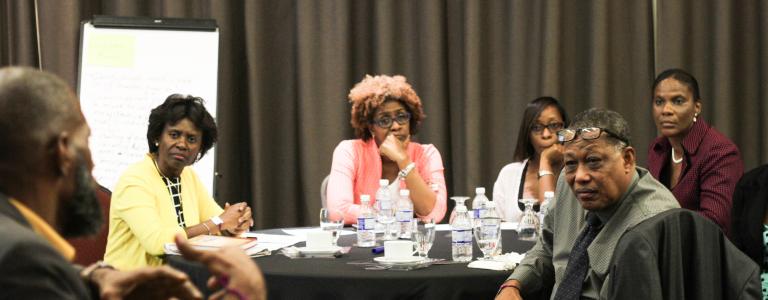Gender-Related Knowledge, Attitudes, Behaviours, and Practices (KABP) Analysis of Climate Change and Disaster Risk Management Coordination Mechanisms in the Caribbean
Individual and institutional biases and discriminatory behaviours related to gender can undermine progress on gender-responsive climate change adaptation and disaster risk management (DRM). Changing attitudes and practices in key institutions can lead to more equitable outcomes on the ground.
Efforts to build resilience to climate change and disasters in developing countries will not be effective or sustainable if they do not take gender into consideration. People of different genders experience the impacts of climate change and natural hazards in different ways and have different needs and capacities to respond. If these issues are not considered in climate change and DRM policies, plans, and initiatives, there is a risk that they will reinforce, exacerbate, or create new gender inequalities.
At the same time, the process of building climate and disaster resilience presents an opportunity to address gender inequalities. By acknowledging gender differences in the process, efforts can be made to tackle unhelpful social norms, address systemic discrimination, and empower women as agents of change. By promoting gender-equitable participation and influence in decision making at all levels, we can enable governments to channel finance and other resources for resilience building in gender-responsive ways, increasing the likelihood that the opportunities and benefits resulting from these processes will be more equitably shared.
Building on a mapping of gender and climate change policies in the nine targeted countries, the KABP analysis investigates individual and institutional biases and discriminatory behaviours and practices, which are not captured in policy documents. It explores how they play out in coordination mechanisms for climate change adaptation and DRM and how they can be challenged through gender-responsive approaches. The KABP analysis is undertaken in collaboration with UN Women, as part of the EnGenDER project.
You might also be interested in
Building Institutional Capacities for Mainstreaming Gender in Climate Action in Jamaica
This project aims to build institutional capacities to integrate gender considerations into climate finance programming in Jamaica.
Envisioning Resilience
Amplifying women’s voices in climate change adaptation planning
Climate Change and Sexual and Reproductive Health and Rights: Exploring the Linkages
How can we ensure that climate action works hand in hand with efforts to realize sexual and reproductive health and rights (SRHR)?
IISD Next: Campus Workshop Series on Sustainability
A free workshop series on sustainability to educate and empower youth worldwide with tools on policy, sustainable development goals, and more.



